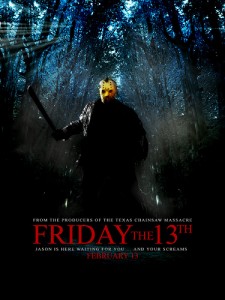 Welcome all you friggatriskaidekaphobians. We feel your pain, even if we don’t share your fear of Friday the 13th.
Welcome all you friggatriskaidekaphobians. We feel your pain, even if we don’t share your fear of Friday the 13th.
Most of us, of course, note it just as we might Groundhog Day, except that Friday the 13th, always falling on a Friday (duh!) means the weekend is just hours away. So that makes it a good thing.
Alas, for HR professionals and supervisors with superstitious staffers, when the 13th falls on a Friday, it can mean more absenteeism and less productivity. An estimate in 2004 put the business loss at $800-$900 million. If that estimate still holds up, then the superstition will cost U.S. business almost $3 billion this year, since there are three months when the 13th falls on a Friday: today, then in April and July.
As silly as it may for some, for perhaps as many as 21 million Americans, the day holds special fears. This could mean anything from exercising more care than usual, to a compulsive, even pathological inability to function.
Many date the fear back to antiquity, never mind that the researchers who have looked into friggatriskaidekaphobia find no reference to it before the 1800s. On the other hand, triskaidekaphobia — fear of things 13 — has historical antecedents going back centuries. Today it holds sway today in such subtle ways as omitting the 13th floor of buildings and hospital and hotel rooms, and airline flight numbers.
In Thirteen: the story of the world’s most popular superstition, author Nathaniel Lachenmeyer cites a Texas Instruments decision to offer an early retirement plan with a Monday retirement date, rather than the more traditional Friday. Why? Because the Friday would have been the 13th explained the HR department.
There’s not much written about the HR implications of workers with superstitious beliefs about Friday the 13th specifically. An article about the issue in the United Kingdom on HR Review suggests advising fearful workers to obtain treatment. There’s also a four step self-help list in the article.
In the States, it’s a little dicier a situation.
Workers debilitated by superstitions may have a genuine disability, which might well be covered by the Americans With Disabilities Act, or, potentially, Title VII, if there is some sincere religious basis to fear of the day.
For instance, an evangelical Christian was suspended and then fired by Berry Plastics Corp. stemming from his refusal to wear a sticker promoting 666 accident-free days. (If the number means nothing to you, you either aren’t a Christian or don’t watch horror films.) The U.S. Equal Employment Opportunity Commssion issued a right-to-sue letter, and now Berry is being sued for religious discrimination.
However, when a Pentecostal Christian objected to Halloween decorations in the office as a form of discrimination, a judge tossed the case ruling: “Halloween lost its religious and superstitious overtones long ago. It has become instead a commercial holiday enjoyed by communities in its many forms of entertainment.”
Before penalizing an employee for a Friday the 13th action, consider whether it might be some form of religious belief. The EEOC compliance manual says that merely because a practice may “seem illogical or unreasonable to others” or even if it is unique to just that one person, it might still be a legitimate religious practice requiring accommodation.
More commonly, a severe, debilitating case of friggatriskaidekaphobia may stem from some form of mental or emotional issue. While the term doesn’t appear in the psychiatric manual of mental health diagnoses (DSM-IV), it would probably be considered an anxiety disorder, if it was sufficiently severe. As a superstition, it would probably be ignored.
That’s a determination for a psychiatrist or a psychologist. HR’s role is to determine whether the impariment rises to the level of a disability, and if it does, then what accommodation is reasonable to make for such individuals. The EEOC itself advises “Not all conditions listed in the DSM-IV, however, are disabilities, or even impairments, for purposes of the ADA.” However, if it is, then says the EEOC, “To rise to the level of a “disability,” an impairment must “substantially limit” one or more major life activities of the individual.”
That might be the case if the friggatriskaidekaphobia was part of a ritualized practice of superstitions, such as might be exhibited in obsessive-compulsive disorders, which the DSM-IV classifies under anxiety disorders.
Tony Shalhoub became an OCD poster boy for his portrayal of detective Adrian Monk. The character had a germ phobia, worries about symmetry and safety, is superstitious, and has a few other issues. Despite his symptoms, Monk managed to solve seemingly impossible cases, proving that with some accommodations (a nearly full-time assistant) people can be productive.